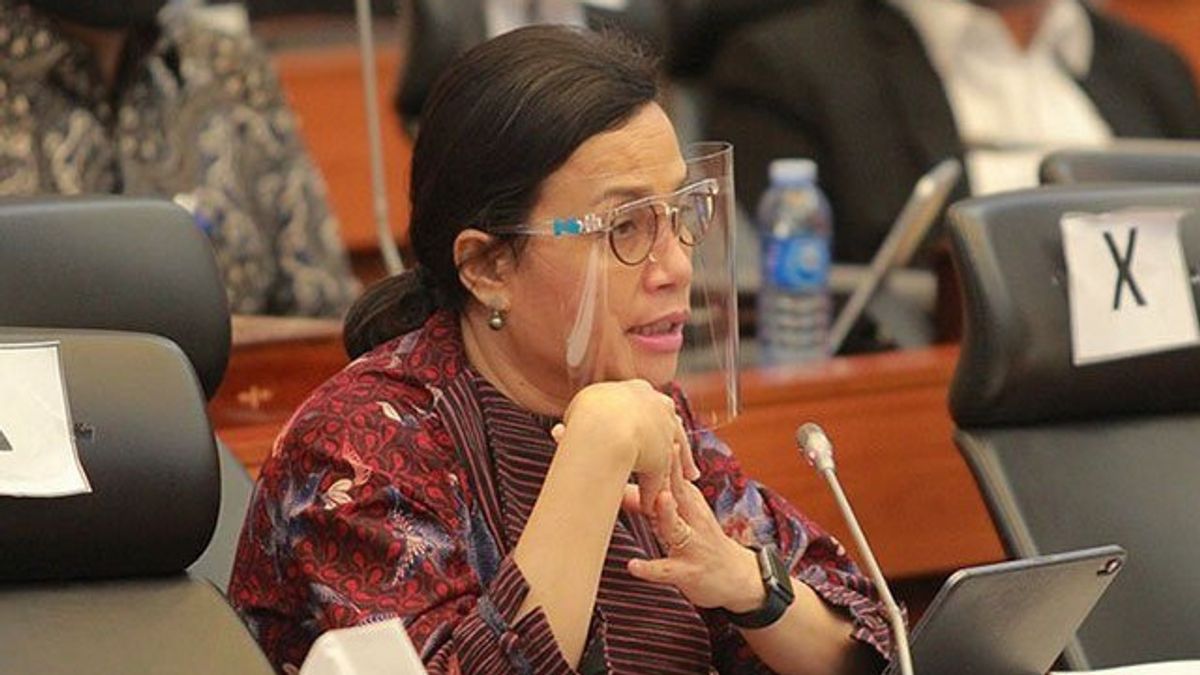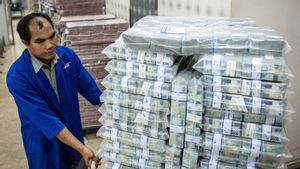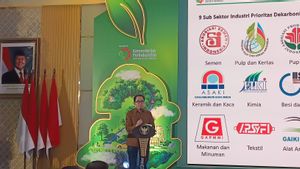JAKARTA - Minister of Finance, Sri Mulyani, said that one of the important keys for the consolidation and restructuring of the state budget is to increase state revenues, especially in the tax sector. According to her, reform in the taxation sector is an important agenda that must be carried out.
"Two important things in taxation that should not be abandoned are reforms in the field of policy and reform in the field of tax administration, digital technology provides challenges and opportunities", she said in a press statement, Wednesday, August 18.
The Minister of Finance added that the Ministry of Finance, especially the Directorate General of Taxes (DGT), needs to understand the meaning of digital technology and its implications.
"In terms of policy, we continue to coordinate among tax authorities around the world because all countries in the world are also facing COVID-19. They have also carried out extraordinary policies using their State Budget and they are now also struggling to start improving their State Budget”, he said.
In addition, the unlimited economic activity causes complexity in policymaking and tax administration. The existence of digital technology also creates complexities in tax administration. Another risk is how data, privacy, and confidentiality can be threatened.
"These various risks need to be discussed when we discuss the role and challenges of digital technology for human life and ultimately for us at the Ministry of Finance and DGT", she said.
Furthermore, the Minister of Finance asked DGT to think about how to design a tax administration that can keep up with the dynamics of the digital era, provide good services, and can use data that appears in real-time.
“With access to extraordinary data and the data set we have, which is so large, that comes from taxpayer reports, it is a very large field for us to be able to understand the economic and even social life of the community and how we can design good policies. It's not just how we collect taxes, she explained.
SEE ALSO:
The former World Bank and IMF boss said that Indonesia's economic conditions continued to change due to various factors, such as the shock of the pandemic, the digital economy, and globalization. The Minister of Finance hopes that DGT can improve the quality of its services by accessing, processing, and utilizing so much data.
"I hope that the Directorate General of Taxes will also participate, even continue to anticipate, adapt by learning how to use data in this extraordinary era of digital technology, both for tax services, both for developing the Indonesian economy and of course finally collecting taxes fairly. and efficient", he said.
For information, the tax sector is targeted to be able to contribute IDR 1,229.6 trillion to the state. Meanwhile, until the first semester of 2021, the realization has reached IDR 557.8 trillion or around 45.4 percent.
Meanwhile, in the 2022 State Revenue and Expenditure Budget Plan, the tax target that can be collected is IDR 1,506.9 trillion, equivalent to 9.5 percent of gross domestic product (GDP).
The English, Chinese, Japanese, Arabic, and French versions are automatically generated by the AI. So there may still be inaccuracies in translating, please always see Indonesian as our main language. (system supported by DigitalSiber.id)
















